| Thank you to my niece for giving me this book to read. We are in the middle of the Covid pandemic, I have time to read, but I don't. So I'm glad I read this book. It is very atmospheric, a bit slow at first, but still held my interest. Bizarre characters and I kept wondering what the hell was going on. It all comes together with an ending I found rather satisfying. If you like horror you'll probably like this book. I gave it five stars on Goodreads. |
|
0 Comments
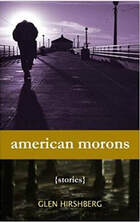 I bought this book from the author at my writers' club meeting. I gobbled it up in three days, which says something for me. I wanted to get home from whatever I was doing so I could read more. I found the stories amazing, especially Safety Clowns. I had to ask myself, “What would I have done?” Like a Lily in a Flood made me go “ah-ha!” With the author’s use of one word, the entire meaning of the story was released. The story about the amusement park made me uneasy and when the characters made a decision that surprised me (I don’t want to release a spoiler here), I was surprised, and even more uneasy. The last story, The Muldoon, provided a twist ending which I really enjoyed. If you are looking for in-your-face horror, look elsewhere. But if you like smart writing with everyday situations that hold a surprise, then do read. My only criticism is that sometimes I didn’t understand a line, or I had to reread to make sure of the imagery I had in my head. But mostly, I found myself savoring the descriptions which always promised that something a little dangerous was around the corner. My new children's book is now available on Amazon. It is always gratifying to start something new and have it come to fruition. In three days I have received over one-hundred and thirty likes from strangers on my Facebook post about this release which tells me the cover is doing something right. Still looking for that first review!
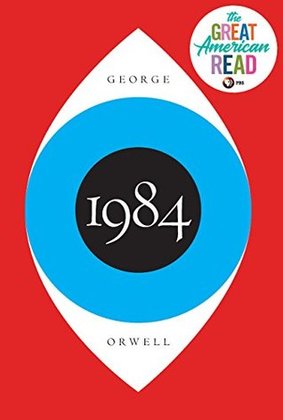 I read this book because it is a classic dystopian novel. I thought it was about time I saw for myself what it was all about. Some parts I found fascinating, but there were parts I had to skim. My mind was wandering anyway. These passages were when Orwell got super philosophical and went on and on and on and on and on and on and on and on and on . . . Okay, repetitive. Very repetitive. Did I say, repetitive? Would that word be allowed in the final, or even the latest edition, of Newspeak? I don't know. The answer might be in the appendix, The Principles of Newspeak, but I skimmed that part. I don't know if I wholeheartedly believed a society like this could exist for long. As Regina King said in "Enemy of the State," "Well, who's going to monitor the monitors of the monitors?" And frankly, the lowest class in a society if kept down unfairly for too long, will eventually rebel because they have nothing to lose. That class isn't being monitored in this book and have the freedom, it seemed to me, to organize. I did like the main character and I cared what happened to him. That counts for a lot. I don't know how realistic it is that governing people in a position of power in this awful society would be more interested in seeing this kind of world, this sort of society, live forever at the expense of their own lives. Some. Maybe. But a society so cruel and heartless and soulless. Seems like they'd be more interested in themselves. Now, see, that is what I found good about this novel. It made me think. It made me wonder. It made me glad that there are no Thought Police and I hope there never are. 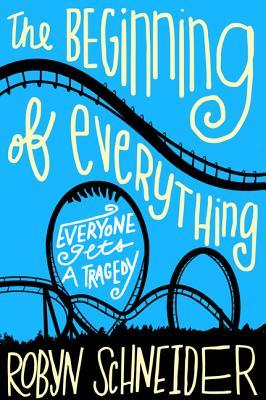 I hate the beginning of this book. Suspension of disbelief and all that. No one ever had their head lopped off on Big Thunder Mountain at Disneyland. How do I know this? 1) if Disneyland had built the ride so that that could happen should you stand up while roller coasting, there would probably be a lot of suicides at the park and would Disneyland really want that?, and 2) a bar is put across your lap so you can't stand up. IMHO the author should have made up some nonexistent amusement park if she really needed a head to land in someone's hands in order to start off with "everyone gets a tragedy." Okay. That's out of my system. I liked this book. It took me a little time to. I never related to the main character, not to any of the characters, really. I was never rich. I was never popular. I was never on the debate team in high school after having ostracized myself from the popular crowd because I thought they'd rejected me (when they hadn't) because I had a car accident and couldn't be captain of the tennis team anymore because I couldn't play tennis because my knee was ruined for life. Switching characters, I was never the manic pixie dream girl -- sorry, I had to throw that in. I'd never heard the term before and I kept seeing it in reviews of this book and looked it up. It's a thing! I told you I was late to the party in another review. Anyway, you get it. I don't relate to these characters. However, I was an insecure teen at one time, long long ago (long ago the teen part; present day I'm still insecure), and so it was fun to enter a high school world of today and watch everybody cope. The smart nerds of the debate team cope by being smart and witty and knowing things I've never heard of half the time. The popular crowd is shallow and basically unlikeable. Hmmm. Is all this stereotyping? You know what, it is. But never mind. I still liked the book. I guessed the "surprise" secret the love interest Cassidy revealed at the end of the story. I read a review that complained about that because the reviewer thought the secret was impossible. I disagree. Stranger things have happened. In the end this book is about friendships and jealousies and insecurities and bullying and all the things that go on in high school. It's about finding oneself which is something I can relate to. 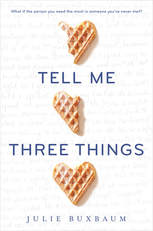 I'll start off by saying I really liked this book. Then I did what I do, I read some of the one-star and two-star reviews. And, you know what? I agree with a lot of what they had to say. But the flaws that spoiled the book for those reviewers didn't bother me so much. I got caught up in Jessie's plight, in her old and new worlds. I liked reading her conversations with the mystery guy. (I accidentally saw who that was, so he wasn't a mystery for me--wish I hadn't seen that.) I wanted to finish this book so badly, I read from page 144 to the end in one sitting. One of the things I liked best was the relationship between Jessie and Theo. I wish there had been more written here. I loved him standing up for step-sister Jessie against the bully. I liked seeing how this blended family was starting to blend. The book worked for me. What can I say? 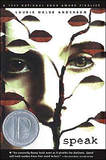 Boy, am I late to the party. This book was published in 1999. I've decided to read a lot of YA novels and this one sounded important. No wonder, though, when I was reading it, it didn't sound current; although in the era of MeToo, it is timely. I think the book is excellent. I enjoyed the writing and the story interested me. That's because I like character studies (fascinating characters, of course) and this book is all about the character. We get a sort of stream of consciousness from this outcast girl as she drowns in her emotions and later finds her way to the surface. Sometimes I got a little tired of reading about the mundane activities taking place at her high school, but that fit story. The ending was too abrupt for me and that's my biggest complaint. 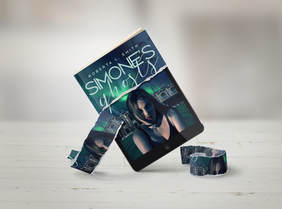 So my screenplay of "Simone's Ghosts," based upon my novel of the same name, made the Quarter Finals of the Los Angeles International Screenplay contest. I was overjoyed. Especially in view of the fact that there were over 2500 entries. But a week later I learned that I did not make the Semi Finals. Here is the notice I received: Dear Roberta, This contest season has been full of terrific writers with bright futures. You are among those promising stars of the Spring 2018 Competition. After closely reviewing all Quarter Finalists, however, your script didn't make the Semi Finals. Don't be discouraged; your script placed in the top 4-8% of all screenplays entered in the 2018 Spring Awards. That in itself is a tremendous accomplishment that speaks to your talent and hard work. Everyone on the Senior Judging Panel started where you are today. For some of them, it took more than a decade before their efforts began to pay off. Of course, the industry is changing rapidly. There are now many more avenues to success and more platforms for you to see your work produced. As a Quarter Finalist, you should be encouraged. You clearly have skills to succeed, and we hope you'll continue learning, writing, and re-writing. As you know, the only sure path to failure is to stop trying! Please stay in touch and let us know how your writing career is going. We hope to see much more of you in the future. With every best wish for your screenwriting success! Sincerely, The Senior Judging Panel at The Los Angeles International Screenplay Awards Not bad for a rejection letter, right? 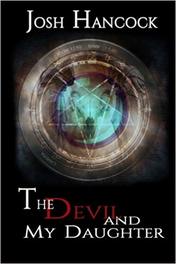 First off, the author of this book can write anything. He's goooood! Since this is an epistolary novel, the reader experiences all kinds of writing (stage play, screenplay, screenplay treatment, newspaper article, interview). The stage play written by the character Charlene is a tight little ten minute one-act that is great. Loved it. The treatment of "Blood Songs" is brilliant. I was impressed. But, for me, the middle of this novel got repetitive and tedious. I learned I probably won't read another epistolary novel. And I'm starting to question how much I love horror. I am not into blood and guts. The character I found myself caring about the most was Mark Tanner. The things that happened to him are sad, but are also what make for a good horror story. If I hadn't read a couple of non-fiction books about spirits before this, the idea that a demon could be conjured would have been nothing but a fairy tale in my mind. Now, I wonder. And the fact that the lights in my house have been acting up since reading this book isn't exactly freaking me out, but it's making me think I should just do some light reading for now. Yes. I think that is a very good idea. 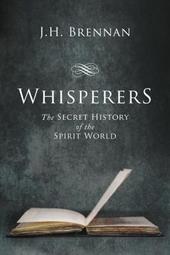 This book was very difficult to read at first because it is like a textbook in many ways. But it still held my interest and when it reached areas of history I was more familiar with, it got easier for me. Fascinating, even. Briefly, here is how the author summarizes his book: "spirit contact, for centuries, was widely taken at face value as communication with discarnate intelligences inhabiting a nonmaterial reality. With the advent of Victorian materialism, however, this view of the phenomenon began to be questioned and alternative ideas put forward. Although some apparent spirit manifestations were shown to be fraudulent, fraud clearly could not account for them all and, increasingly, psychological explanations began to be advanced. Initially these were confined to ideas like unconscious fabrication, self-deception, or pathological hallucination, but proved unsatisfactory in accounting for certain aspects of the phenomena..." I thought this book would delve into how the spirit world affected world history. And it touched on that, but only a little it seemed to me. It was really more a history of mankind's view of spirits and how, at different times in history, mankind interacted with spirits according to belief at the time. On a personal level, I now know I'm not weird for my interest in spirits and ghosts. That interest is as old as mankind. And with all the experimentation by people a lot more patient than I am, I believe there is evidence that spirits do exist. Those who wish to ignore that evidence and write everything off as "fraud," well, they've just reached their Boggle Threshold. |
Here goes . . .I write novels. I've written screenplays, short stories, newsletters, business communications and articles. I'm not great at thank you notes. My sister is, but she doesn't know it. I'm not much for blogging. Don't have something to say worth reading everyday. But this is a blog and we'll see what turns up. Archives
February 2024
Categories
All
|
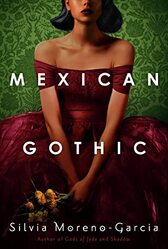
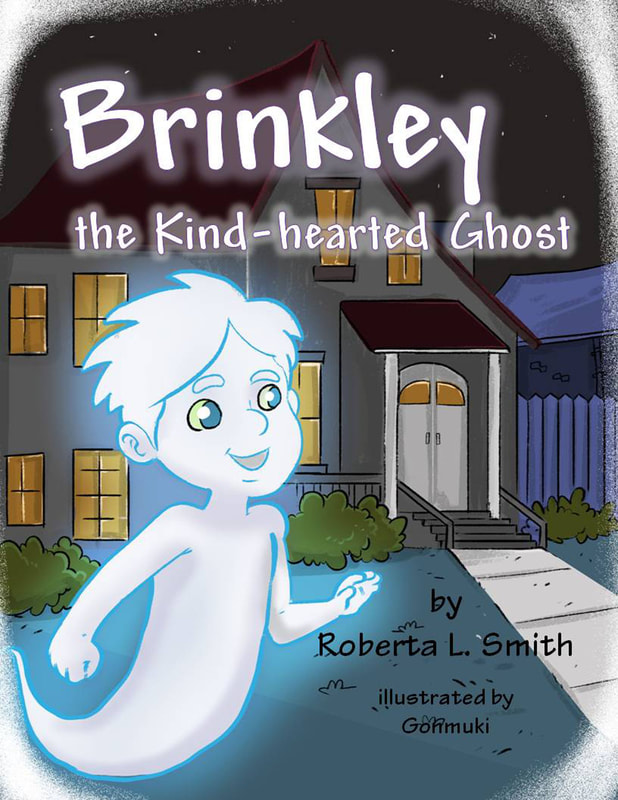
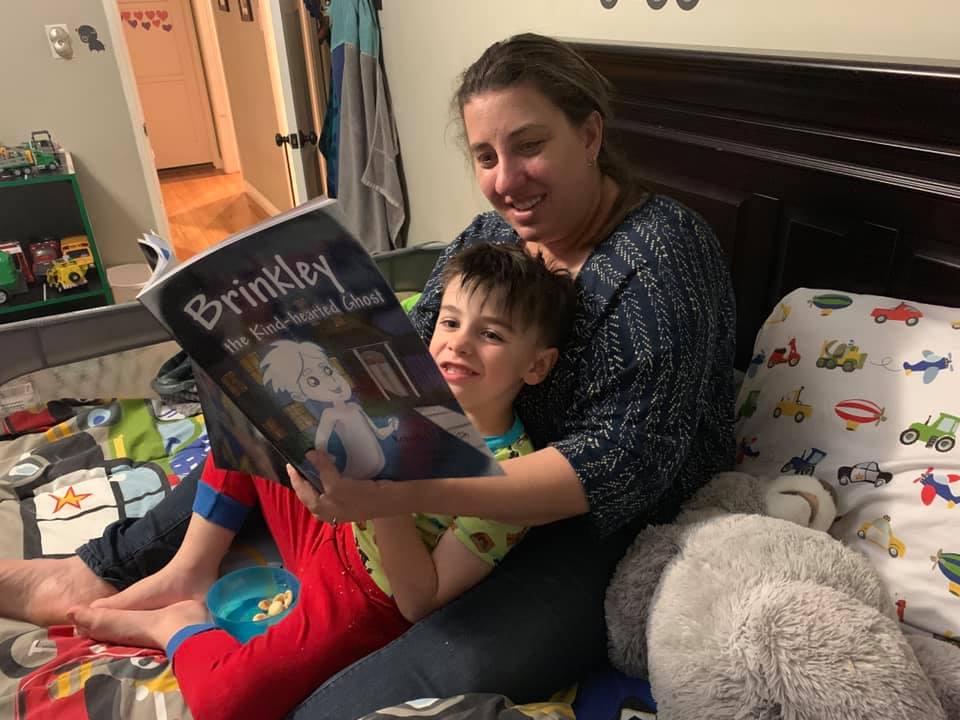
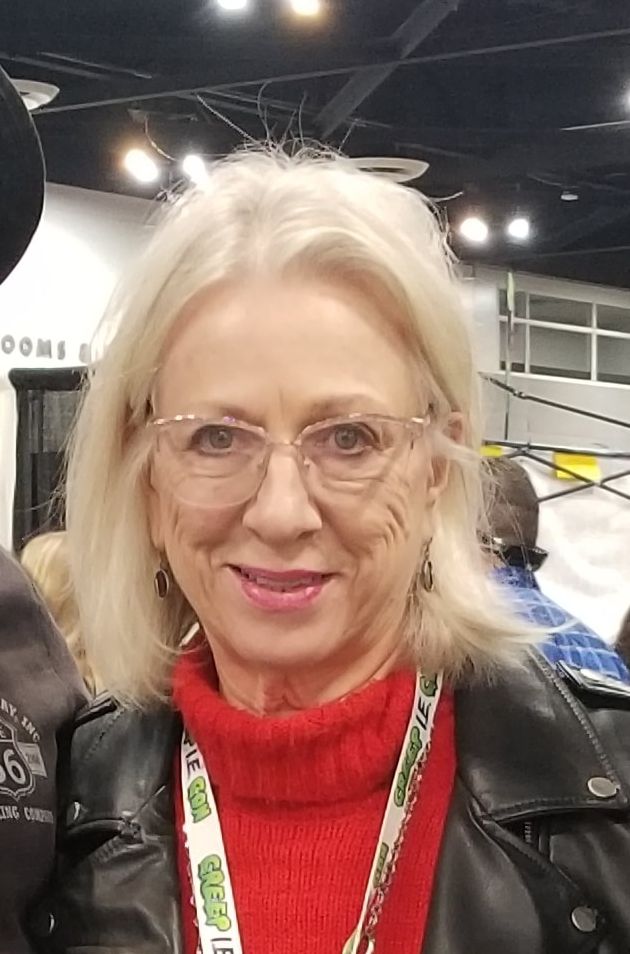
 RSS Feed
RSS Feed